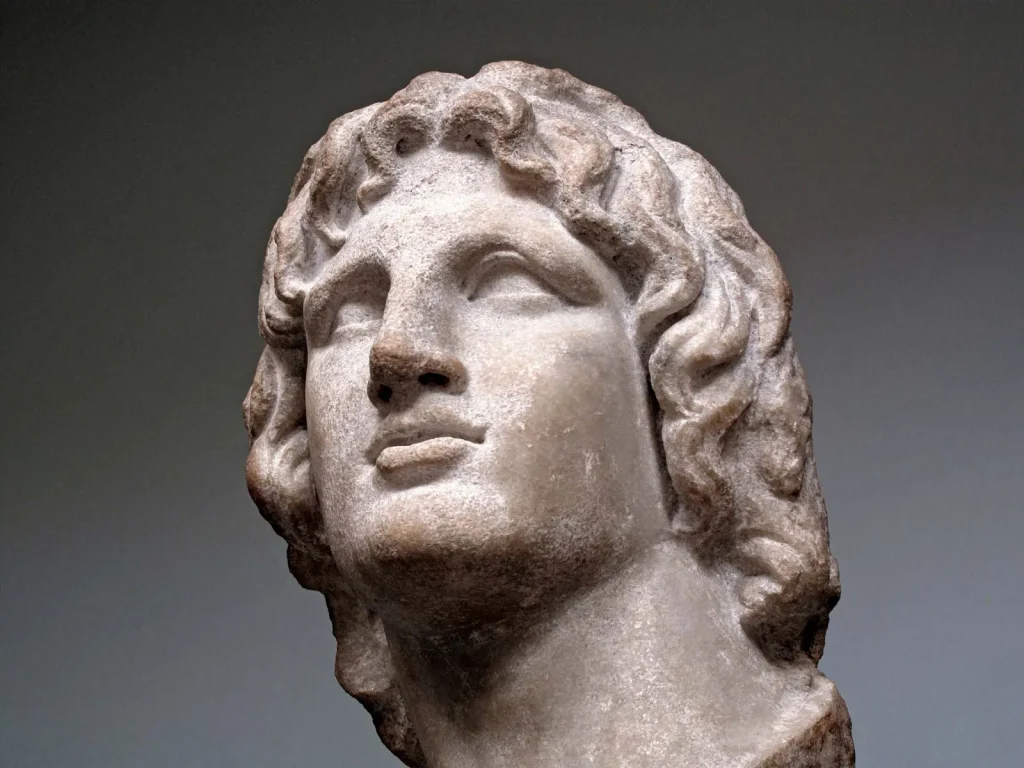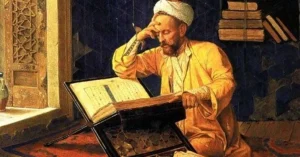
Alexander the Great was one of the greatest military commanders and conquerors in ancient history. He ascended the throne of Macedonia at the age of 20 and, within a few years, built a vast empire stretching from Greece to Egypt, Persia, and parts of India. Known for his exceptional leadership, strategic brilliance, and courage, he remains a legendary figure in world history. Though he lived only 32 years, his achievements left a lasting impact. Alexander was not only a warrior but also a promoter of culture and knowledge, helping to spread Greek influence across the known world.
Early Life and Education (356–336 BCE)
Birth and Lineage
Alexander III of Macedon, later known as Alexander the Great, was born in 356 BCE in Pella, the capital of Macedon. His father, King Philip II, was a brilliant military leader who transformed Macedon into a dominant power, and his mother, Queen Olympias, was a highly ambitious woman who claimed descent from the mythical hero Achilles.
Education Under Aristotle
At the age of 13, Alexander was tutored by the famous Greek philosopher Aristotle, who instilled in him a love for philosophy, science, literature, and warfare. Under Aristotle’s guidance, Alexander studied Homer’s Iliad, which inspired him to model his life after Achilles, the legendary Greek warrior.
Rise to Power (336–334 BCE)
The Assassination of King Philip II
In 336 BCE, Philip II was assassinated at a royal gathering, and the 20-year-old Alexander ascended the throne. He quickly eliminated rivals and secured his position as the undisputed king of Macedon.
Suppressing Revolts and Uniting Greece
After assuming the throne, Alexander swiftly crushed rebellions in Thrace, Illyria, and Thebes. His decisive actions ensured that the Greek city-states remained under his control. He was then declared the hegemon (leader) of the Corinthian League, a coalition of Greek states.
Conquest of the Persian Empire (334–330 BCE)
Battle of Granicus (334 BCE)
Alexander launched his invasion of Persia in 334 BCE. His first major battle against the Persian satraps (governors) took place at the Granicus River, where his army secured a decisive victory.
Battle of Issus (333 BCE)
In 333 BCE, Alexander faced the Persian king Darius III at the Battle of Issus. Despite being vastly outnumbered, Alexander’s superior tactics led to a resounding victory, forcing Darius to flee.
Siege of Tyre (332 BCE)
One of Alexander’s greatest military feats was the seven-month-long siege of Tyre, a well-fortified island city. After an intense battle, Alexander successfully breached the walls and conquered Tyre, solidifying his control over the eastern Mediterranean.






